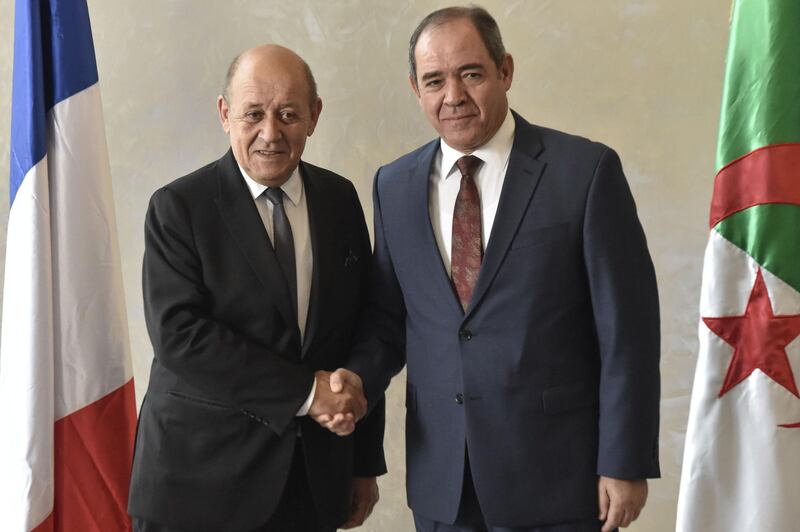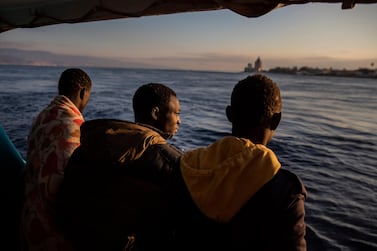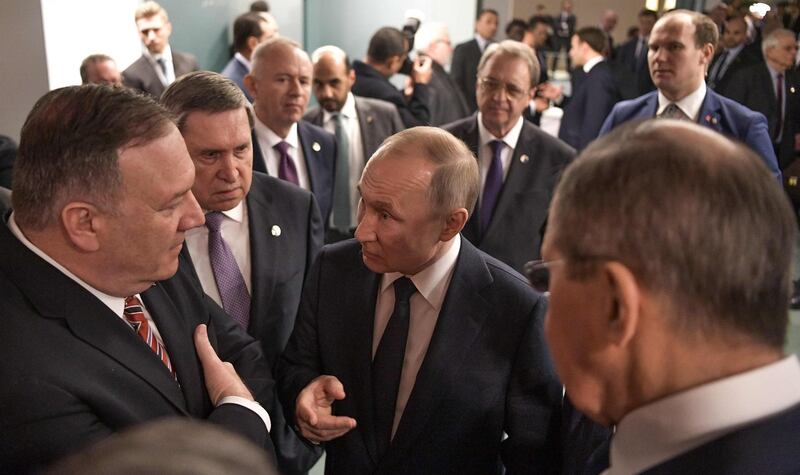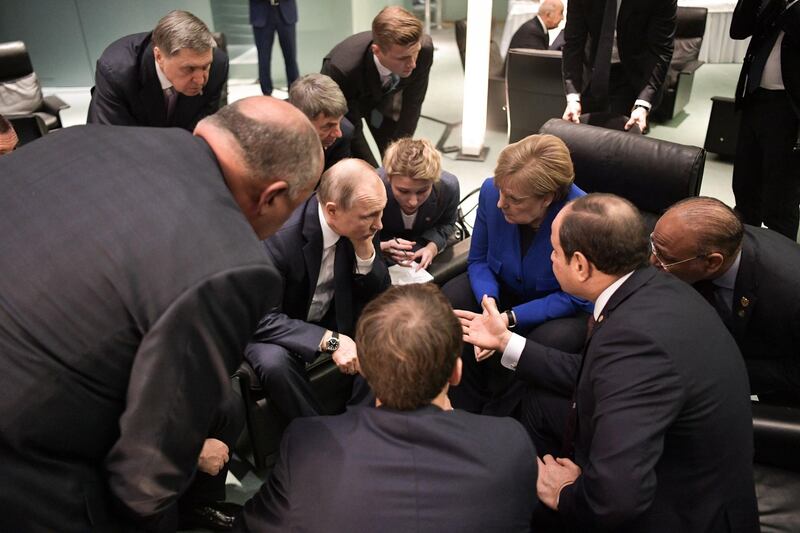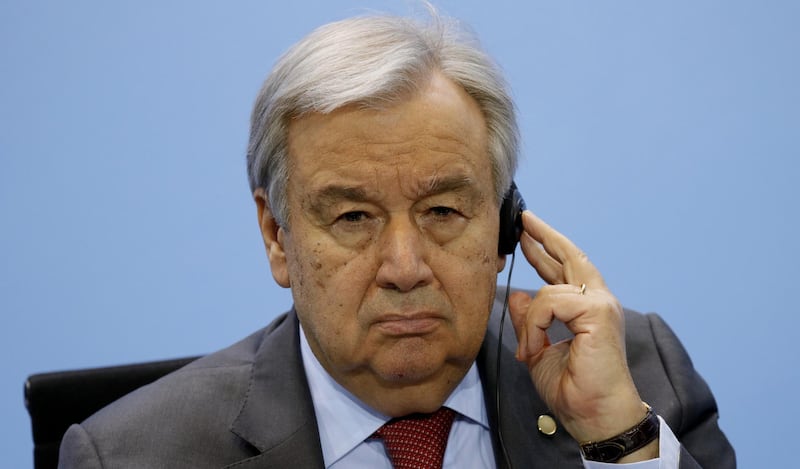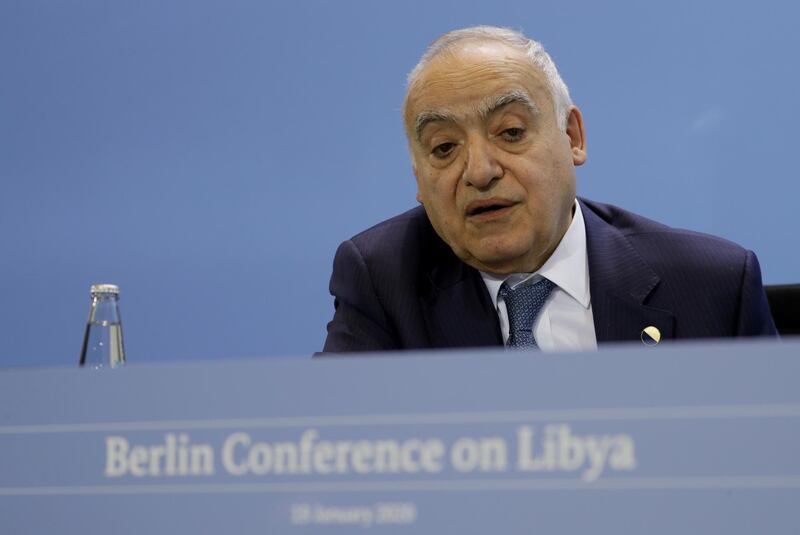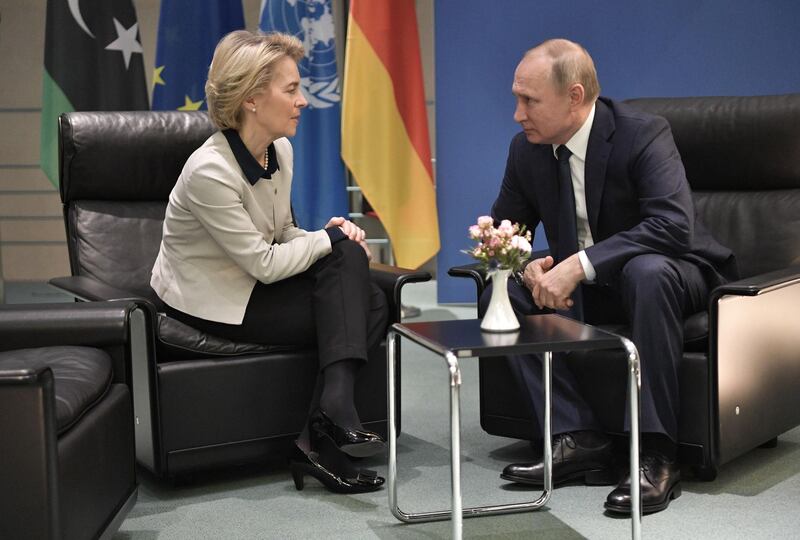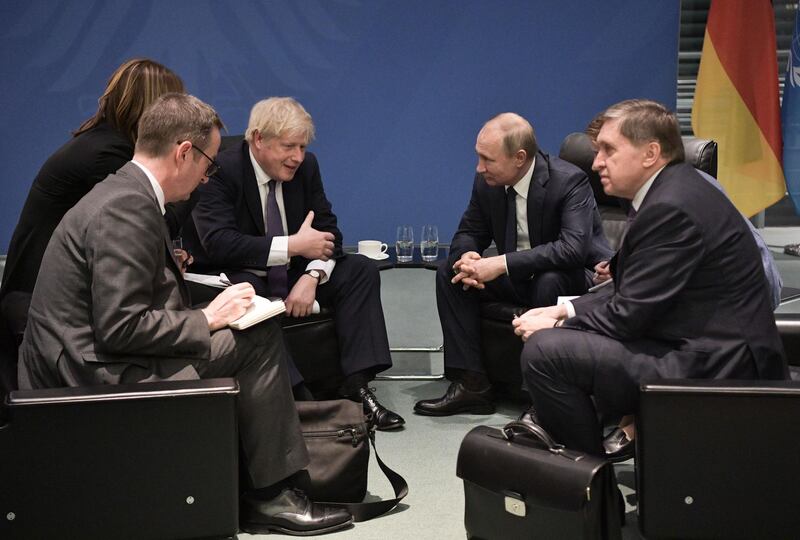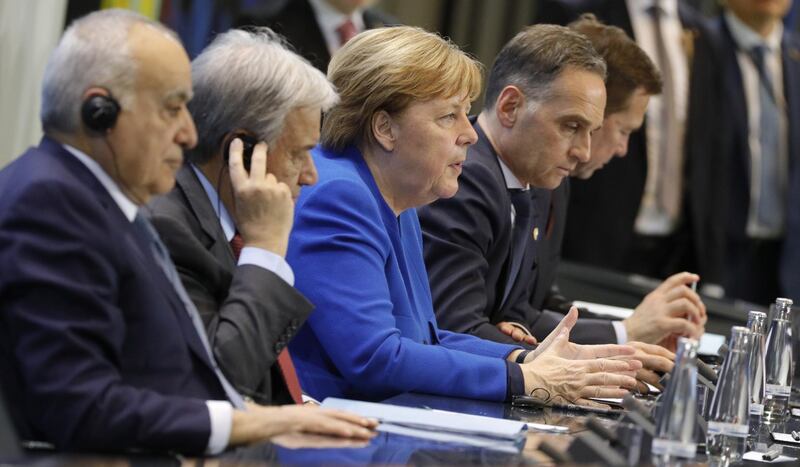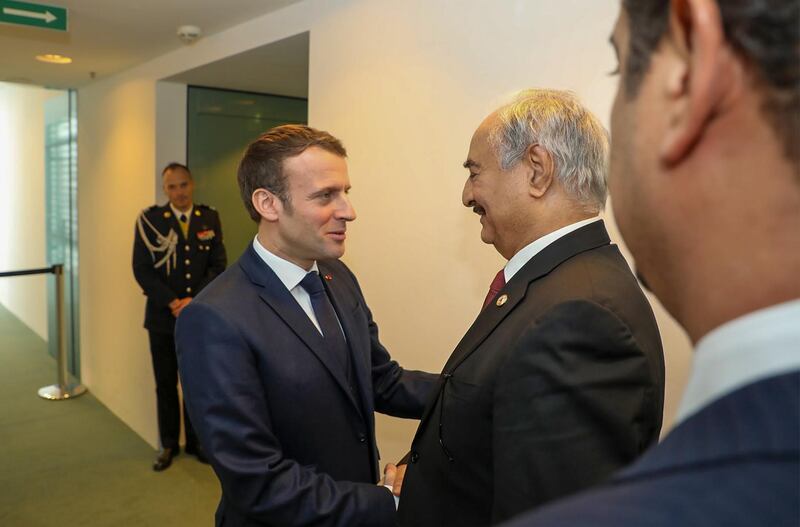French Foreign Minister Jean-Yves Le Drian said France will co-ordinate with Algeria's efforts for a ceasefire in Libya after the north African country offered to hold inter-Libyan talks on its soil.
In a visit to Algeria on Tuesday, Mr Le Drian said the two countries shared “a convergence of views” on resolving the Libya conflict and stressed they would “act together so that the efforts initiated at the Berlin conference can continue”.
The visit came as the European Union agreed to “refocus” its naval operations in the Mediterranean to help enforce a UN arms embargo on Libya.
The EU’s foreign policy chief Josep Borrell said the bloc will also look at ways to help monitor a ceasefire in the country once one replaces the fragile truce currently in place.
A key component of the naval mission, named Operation Sophia, had been to thwart migrant smuggling from the country, but Italy believes the operation only encourages migrants to set out for its shores from northern Africa.
Last year, the government in Rome blocked the deployment of any ships to the mission, and it currently functions almost exclusively using aircraft and unmanned drones.
Mr Borrell said the ministers agreed to “refocus the mandate” of Operation Sophia in favour of the arms embargo.
Italian Foreign Minister Luigi Di Maio said Sophia could be used only if it is “dismantled and reassembled in a completely different way”.
“It would be a mission for monitoring the embargo, and nothing else,” he said.
Italy and France are divided on tackling the ongoing conflict in Libya.
A fragile truce between Libyan National Army chief Field Marshall Khalifa Haftar and the UN-backed Government of National Accord was threatened by continued fighting south of Tripoli.
World leaders last week committed to ending foreign involvement in the conflict and to upholding a weapons embargo on the country. They failed to achieve a permanent truce.
Renewed fighting has caused a spike in the numbers of migrants attempting to flee to safety in Europe across the Mediterranean.
At least 63 migrants are known to have died attempting to reach Europe this year, according to data from the UN migration agency.
Future Libya talks are certain to face huge challenges, particularly after forces loyal to Field Marshal Haftar blocked oil exports from Libya's main ports last week.
A surge in the number of Syrian mercenaries being flown in by Turkey to prop up the GNA has also fuelled concerns.
The Syrian Observatory for Human Rights said on Tuesday that 28 Syrian fighters have so far been killed during the Turkish-backed deployment in Tripoli.
